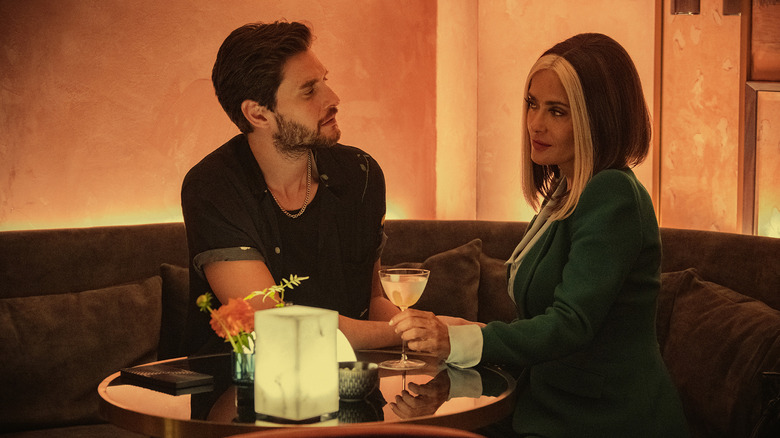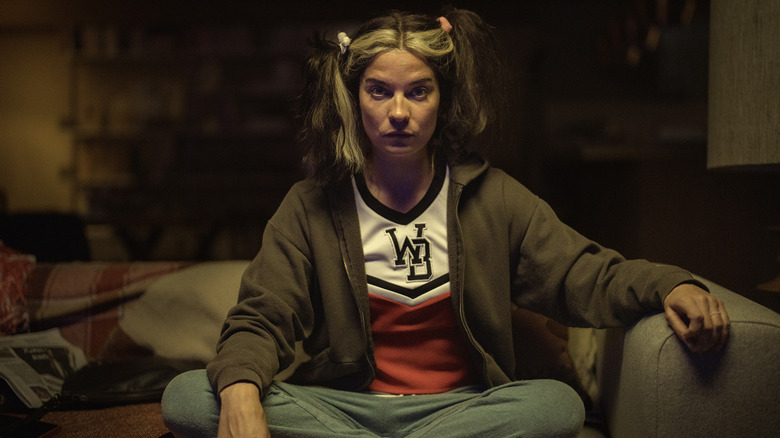Black Mirror Creator Charlie Brooker 'Delighted' That Joan Is Awful Is So Timely
By design, it's hard to tell how many people are actually watching the return of the sci-fi anthology series "Black Mirror" on Netflix. But a lot of chatter seems to be happening regarding the first episode of the sixth season, "Joan is Awful." The story revolves around Joan, the middle manager of a tech company called Sonicle, who comes home to find that a television show based around her life has just suddenly appeared on her favorite streaming service, Streamberry. As it turns out, Joan unknowingly signed away the rights to her own image and life when she agreed to the terms of service before signing on to start binge-watching.
Now, everyone is tuning in to watch a modified version of her daily life starring Salma Hayek Pinault that doesn't exactly paint her in the best light. By the end of the episode, both women wind up joining forces to break into the Streamberry headquarters to destroy a supercomputer called the Quamputer that's using AI to generate instant content based on the real lives of its users.
"Joan is Awful" represents the best of what "Black Mirror" can be, offering up an opportunity for us to examine our relationships with technology and help us predict what the near future might look like. With the issue of Artificial Intelligence quickly becoming a major issue affecting almost every facet of life, the themes in "Joan is Awful" are suddenly so relevant to what's happening in the here and now.
The timing couldn't be better, but according to "Black Mirror" writer and creator Charlie Brooker, the connections between the episode and real life are genuinely unsettling.
Timing is everything
If we're truly entering the age of AI, the potential for the technology to generate its own content by itself could actually be on the horizon. Hollywood is certainly aware of that fact, with the use of AI in the writer's room becoming a key concern in the ongoing WGA strike. Brooker, admittedly, likes the fact that "Joan is Awful" is gaining so much attention, even if it makes him a little wary about the uses of AI if it gets into the wrong hands. He told Vanity Fair:
"I'm delighted that it's so timely, even if it's worrying stuff that it's touching on. We wrapped filming and then about a month later, ChatGPT came out. It's one of those things where as a writer, you look at that and go: Uh oh! But the more you use it, the more you can see what it can do and what it can't do. It has value as a tool for writers, like artists using tools in Photoshop. The worry is obviously executives going: I'll generate a load of crap IP with ChatGPT and then get a human to knock it into shape."
The problem with Brooker's comments about non-creatives using AI to replace talent is they're not necessarily the only ones that could end up embracing the new tech. After making massive Marvel blockbusters with his brother, director Joe Russo is perfectly happy to usher in a new era of engineered storytelling that would use photoreal avatars that place users inside their very own custom-made movie. That sounds like the flip side of "Joan is Awful" where someone is perfectly willing to have their life play out on their television screen instead of a corporation usurping your identity. I don't personally want that future, but I'd love to watch a "Black Mirror" episode about it.

